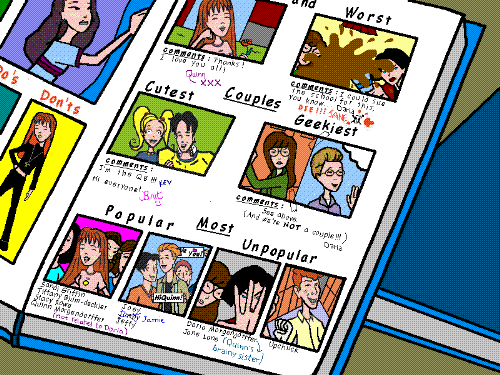Ever since the release of the popular hit movie, Mean Girls, many schools have feared for a new sort of bullying between girls. While punches may not always be thrown, what is tossed around can be more hurtful and damaging. Stories of tragedies that have occurred after significant bullying have haunted newscasts for some time. With this continued effort to stop bullying, yearbook creators must be more conscious and more aware of what is being published and the effect it can have in such a permanent form. While personal articles are always welcomed in yearbooks and can give a unique insight into the class, there are sometimes fine lines for the rules of article submissions that must be recognized and never crossed.

Here is a general rule guide from expert yearbook producers, such as memorybook.com, on how to know what articles are appropriate and where to draw the line.
1. Rumors must be monitored closely.
This may sound obvious, but some students can disguise rumors well in articles. It is up to the teacher in charge of putting together the yearbook to address what is fact, such as the top swimmer on the team, and what is rumor.
2. Referring to people’s clothing or uniforms should be tasteful.
Recently, an article was pulled when there was poor taste used when talking about the cheerleader uniforms. This type of discussion in a school sponsored project is not only inappropriate, but it can also be hurtful and embarrassing for the cheer team or persons in question. Even when intentions are good, faculty should be cautious about how the words printed can make the persons in question feel.
3. Race, religion or sexual orientation should never be addressed.
Both religion and sexual orientation are extremely sensitive topics, and they have been an unfortunate cause of hate crimes, even in recent times. Opinions on these matters should remain private and should not be published in a book that acts as the voice and culture of the entire school.
4. Keep content light, but also keep it motivating and meaningful.
While humor is appropriate in these articles, it should be kept very light and non-offensive. Instead, the content in the articles should focus on motivating the students and providing meaningful insights into the year past.
School officials are generally well aware of what is and is not appropriate, yet year after year there are stories of inflammatory articles published in yearbooks. Use these tips to avoid controversy and bullying in your school.
Yearbooks happens to be one of John’s favorite things to write about. If you’d like to find out more about memorybook.com, please visit http://www.memorybook.com/

